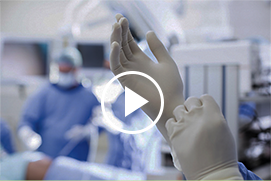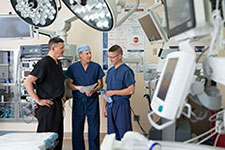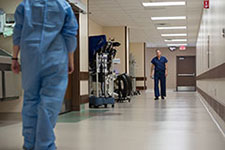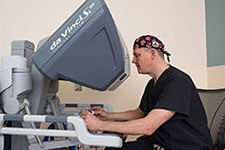A hernia is a weakness or defect in the wall of the abdomen. This weakness may be present at birth. Or, it can be caused by the wear and tear of daily living. If left untreated, a hernia can get worse with time and physical stress.
When a Bulge Forms
A weak area in the abdominal wall allows the contents of the abdomen to push outward. This often causes a noticeable bulge under the skin. The bulge may get bigger when you stand and go away when you lie down. You may also feel pressure or discomfort when lifting, coughing, urinating, or doing other activities.
Type of Hernias
The type of hernia you have depends on its location. Most hernias form in the groin at or near the internal ring. This is the entrance to a canal between the abdomen and groin. Hernias can also occur in the abdomen, thigh, or genitals.
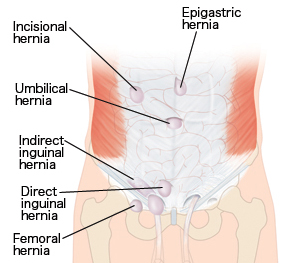 Types of Hernias
Types of Hernias
- An incisional hernia occurs at the site of a previous surgical incision.
- An umbilical hernia occurs at the navel.
- An indirect inguinal hernia occurs in the groin at the internal ring.
- A direct inguinal hernia occurs in the groin near the internal ring.
- A femoral hernia occurs just below the groin.
- An epigastric hernia occurs in the upper abdomen at the midline.
Surgery: The Best Treatment
A hernia will not heal on its own. Surgery is needed to repair the defect in the abdominal wall. If not treated, a hernia can get larger. It can also lead to serious medical complications. The good news is that hernia surgery can be done quickly and safely. In some cases, you can go home the same day as your surgery.



